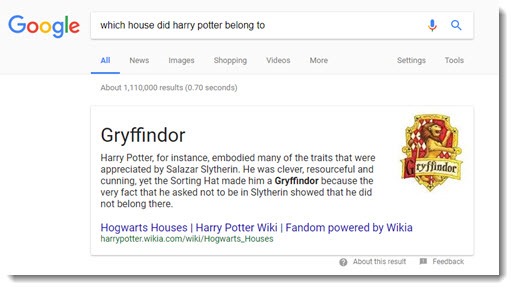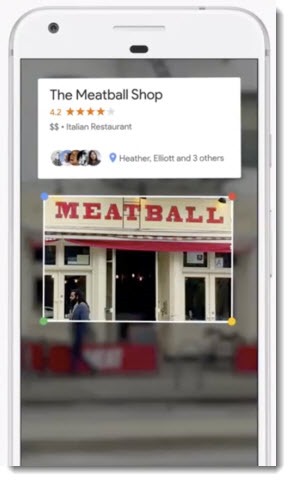
The European Union’s head of antitrust enforcement hit Google with a $2.7 billion fine last week because of a shopping service you’ve never heard of.
The EU’s action comes after seven years of tussling with Google. The case was almost settled in 2014 but intense lobbying caused the proposed settlement to fall apart and led to the much stricter punishment announced last week.
For the most part the lobbying did not come from companies that you’d think of as Google’s direct competitors – not Yahoo, not competing ad networks. (Although Microsoft was in there pitching on behalf of Bing, its search engine.)
Instead, political pressure and lobbying money primarily came from two sources: (1) European publishers like Axel Springer of Germany and Rupert Murdoch, and (2) Yelp, which has obsessively campaigned against Google with antitrust regulators on three continents for six years.
Antitrust law is complicated. I’m not going to cover everything in 1800 words. But there is one aspect of this that you might not have considered: The Quest For One True Answer. It makes it more complicated to decide if there’s a hero or a villain in this story.
Let’s get some background.
Think back to the early 2000s, when Google was establishing its dominance of the new world of the Internet. A Google search would bring up ten blue links on the first page of the search results. Google was so good at choosing the ten blue links that we seldom went to the second page of search results. Other search engines went out of business (Alta Vista) or changed their business model (Yahoo).
Google’s success at producing ten blue links changed our world. A large part of the global economy reorganized itself around a new business model built on Google searches. A Google search would lead to ten blue links; a user would click on one of the links; and the website at the other end would either show advertising or try to sell you something. Even if there are no ads, a business website is basically an advertisement for the business. For many years, “search engine optimization” was big business as everyone competed to rank high in Google search results.
To state the obvious: a business only benefits if you click on the link to see the website. That exposes you to the content that might convince you to use the business, or to the advertising that pays for the site, or to the goods for sale that you might buy. Appearing in Google search results isn’t very valuable. It’s all about showing you the website.
Now our world is changing again. There are four reasons that we don’t want ten blue links any more. Instead we want One True Answer.
(1) Mobile
More than 50% of searches globally come from mobile devices, according to Google. It’s nearly 60% in the US, according to a report last fall.
Our mobile devices have five inch screens. We are on the go and we have short attention spans. We don’t want to scroll through a list, make a decision about which link to follow, then click through to another website where we might have to repeat the search. The New York Times described it this way last week: “(Google) has repeatedly said that as smartphones displace desktop computers as the internet gateway, people just want the answer to their question – not a link to a site where they might have to repeat the query – and that Google’s results oblige.”
When we do a search on a small screen pulled from our pocket on the fly, we want an answer with no fuss. Searches on mobile device require a different experience than ten blue links on a monitor or laptop screen.
(2) Natural language searches
Originally we learned to do searches with Google by typing in keywords – “golden gate bridge height.” Now it is second-nature to ask questions using natural language search. You can type questions as if you were asking someone out loud – “how high is the golden gate bridge?” More than a year ago Google celebrated its progress in natural language search. Simple questions are easy for Google to handle but now it is also able to understand complex, multi-part questions – “who was the US president when the angels won the world series?” It can understand superlatives (“who are the tallest warriors players?”), can respond about particular points in time, and more.
When we search for the height of the Golden Gate Bridge, of course we want the answer – not a link to Wikipedia or the Transportation District website. Even that’s controversial, though. If we don’t click through to Wikipedia, we don’t see its pitch for contributions. If we don’t click through to the Transportation District website, we never see its buttons to buy transit passes and Golden Gate gifts. Those businesses suffer.
Roughly a third of all search traffic comes from local queries, such as looking for nearby restaurants. If you ask Google on your phone where to find an Italian restaurant near you, you want Google to give you an answer and a link to the menu, the phone number, and a map. That makes Yelp furious! Yelp wants you to pop over to its mobile website or app so it can supply its rankings and reviews. And Yelp is hardly the only service for restaurant searches. OpenTable, Zagat, TripAdvisor and many others want to be the first thing you see on your phone when you look for a nearby restaurant.
What do you want on your phone – an answer to your question from Google, or a list of other places to search for an answer? Of course you do. That’s the antitrust dilemma in a nutshell.
(3) Home assistants
Computers are starting to speak our language, and we’re starting to talk to computers. Millions of people talk to Amazon’s Alexa devices and the Google Home assistant every day. This is expected to be the next technology wave; today’s voice assistants are barely the beginning.
We expect accurate responses from home assistants. Google is rapidly improving the Google Assistant app on phones for spoken exchanges. When you ask a question out loud, the answer spoken back to you simply cannot be a verbal list of ten blue links. It must be the answer to your question, with no ambiguity.
When you ask Google Assistant or Amazon Echo or Google Home a question about something in the news, you’ll get an answer and perhaps the source of the answer. You won’t get a list of other sources. If Google does a good enough job of providing the One True Answer, that’s exactly what we want. If you’re a publisher or news organization, that One True Answer is one of the reasons that your business model is crumbling, which makes you so mad that you run to the European Union to put a stop to it.
(4) Coming soon – augmented reality
Before long we will hold up our phone or iPad, or adjust our high-tech glasses, and get extra information as an overlay on top of the real world. We’ll point the Google Lens app at a restaurant and expect a popup to show us reviews by our friends and a link for reservations. Again, we won’t want links to multiple sources of competing information. We’ll want a useful popup. Google’s research in Artificial Intelligence and the data it is gathering from our photos, from its mapping, and from our searches and web browsing, puts it way ahead of anyone else in being able to provide that information as the One True Answer.
Google is responding to our demands as it extends its reach into mobile searches, voice-based assistants, and the upcoming world of augmented reality. But it threatens the business model of Yelp and Axel Springer’s new sites and a million other businesses and websites – and make no mistake, Google is profiting mightily as its One True Answer leads to advertisers paying Google for the favored position. The EU’s fine specifically concerns “Google Shopping,” the sponsored ads that appear in boxes above search results. When you do a search looking for a place to buy Nike Shoes, by definition you’re looking for an advertiser. Google says its advertisers are just wonderful, thank you very much, and says that users find them very satisfying. Meanwhile, screams go up from shopping comparison services and Amazon and Nike, because you’re not taken to their websites.

In the last year or two, Google’s search results on the web sometimes include a “Featured Snippet,” which frames one of the ten blue links with the information that answers your question. It’s likely to be the same information that is read out loud if you ask Google Home that question. Danny Sullivan of Search Engine Land wrote an influential article recently, coining the term “One True Answer” and writing about what happens when Google’s answer is terribly wrong. He showed images of Google highlighting false information about US Presidents in the KKK and Obama’s secret plan to stage a coup. Google is working hard to reduce or eliminate the fake facts problem. As Wired points out, though, “Improving snippet accuracy does nothing to address the problem of Google cannibalizing traffic from the sources from which it strips these answers. Nor does it resolve the underlying philosophical question: When should Google try to provide “one true answer” to a question versus just delivering a list of links? After all, the easiest way to get rid of misinformation in snippets is to get rid of snippets altogether, right?”
Google is trying to be an arbiter of facts as well as a search engine, because that’s what we want. It’s a difficult job. It will be made more difficult as Google is challenged by all the businesses threatened by the prospect of being left out of search results.
Google is a monopoly because it provides a better experience. We’ve chosen to make it a monopoly freely and happily. That doesn’t fit traditional antitrust models. Ben Thompson of Stratechery has written extensively about Aggregation Theory, the “unique dynamics of the Internet push toward dominant players that look very different from the monopolies of the past.” His article about Google and the EU decision lays out the economic and legal arguments clearly. The central dilemma, though, is simple: think about it and you’ll realize that you don’t want to go back to ten blue links when you do searches on your phone. That makes it hard to decide which side to root for in the battle between Google and the European Union, which is apparently moving on to Android and Google’s core AdSense advertising business.
Ben Thompson gets the last word:
“if the European Commission is declaring that Google cannot evolve beyond ten blue links that is both a big problem for Google — particularly on mobile — and arguably a worse outcome for consumers, at least in the short term. And that, of course, is the big conundrum in terms of antitrust and aggregation theory: if monopoly flows from a superior user experience, is mandating a worse user experience true to the ultimate goal of being pro consumer?”


Trackbacks/Pingbacks